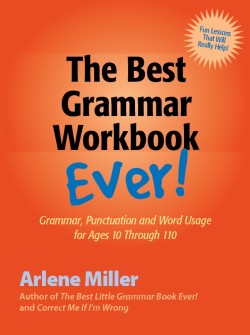 In this post, we begin another series—commonly confused words—and there are quite a few of them! We’re still working on our Weird and Wonderful Words series too and have gotten up to O, so be on the lookout for the completion of that series.
In this post, we begin another series—commonly confused words—and there are quite a few of them! We’re still working on our Weird and Wonderful Words series too and have gotten up to O, so be on the lookout for the completion of that series.
But today we turn our attention to those words—or word pairs—that often stump and confuse. We will start at the beginning of the alphabet.
1. Advice/Advise: These two words are different parts of speech and are pronounced differently. In advice, the c has an s sound, and the word is a noun. In advise, the s has a z sound, and the word is a verb. Examples:
I have some good advice for you. Could you advise me on this legal matter?2. Affect/Effect: This troublesome pair is the granddaddy of troublesome! Once again, these words are different parts of speech. Affect is a verb, an action. Effect is a noun, a thing. You can put an article in front of effect (the effect, an effect). Examples:
The hot weather has a positive effect on my mood. The hot weather affects me and improves my mood.3. Allusion/Illusion: These words are both nouns, but have entirely different meanings. An allusion is a reference to something; its verb is to allude. An illusion is something you see that isn’t there, and there is no verb. Examples:
He made an allusion to Shakespeare in his speech about playwriting. The water you sometimes think you see ahead on the highway is just an illusion.4. Almost/Most: The general rule: If you can use almost in a sentence, use it. Don’t use most. When it is correct to use most, almost will not make sense in its place. Example:
Almost everyone is here by now. (Don’t say most everyone.) Most of the pizza is gone. (Almost doesn’t make sense there, so use most.)5. Already/All ready: Already is an adverb that tells when. All ready is an adjective. Example:
Is it already time to go? I am all ready to go.6. Alright/All right: This one is easy. Always use all right as two words. Alright isn’t a word (or is a really slang word, so avoid it). Example:
Everything will be all right. All right. I will go with you.7. Altogether/All together: Altogether means totally or completely.This pair is best shown by example:
It is altogether too cold for me! Let’s sing all together! (Or Let’s all sing together, where you split the words.)8. Among/Between: These two words are both prepositions. Between is used when you are talking about two people or things; among is used when you are referring to more than two people or things. Example:
Divide the cake between you and your sister. Divide the cake among the four of you.9. Anymore/Any more: Anymore is an adverb that tells when and means any longer. Any more means additional. Anymore is generally referred to in a negative sense and sounds wrong when there is no negative in the sentence. Example:
I can’t find that type of candy anymore. (negative can’t) I don’t want any more pasta, thank you. I wish I could find that type of candy anymore. (Not correct. No negative in the sentence. Sounds very weird to me, but I hear people say it.)10. Anyone/Any one: Anyone refers to a person. Any one doesn’t necessarily refer to a person, and is generally followed by a prepositional phrase beginning with of. Example:
Anyone can eat the leftover pizza. Any one of you could probably fix the broken chair.Stay tuned for more confusing words in future blog installments!
Five books for $20??? Yup! You can have all The Grammar Diva’s books as PDF downloads for a mere $20 (until the price goes up!). Or you can buy any combination of books, or e-books, or paperbacks. Visit my books page!
Coming Summer 2014!




Affect and effect are the words that get me! Thanks…
You’re welcome. I do want to add that about 5 or 10 percent of the time, affect is a noun and effect is a verb — just to make things fuzzy! Affect as a noun means personality or way of being and effect as a verb means to bring about: His affect was unusual. I will try to effect change when I am elected.
Thank you Arlene for straightening out these words. I more than likely will still make mistakes on them because I stop and think about what I should say. However, with your direction I should be able to take your advice.
Regards,
James M. Copeland
Author
Glad to help!
Hi Arlene, it has been a while since I stopped by.
Another meaning of “affect” is a noun and means feeling or emotion. It is an important concept in psychology.
Yes, I know. And then effect can also be used as a verb (to effect change, for example). I generally tell students that 90 to 95% of the time affect is a verb and effect is a noun. The other 5% of the time, it is switched around.
Yes! I hadn’t heard of the noun “affect” until university, when I found it in the Penguin Dictionary of Critical theory – it means, roughly, the emotional charge invested in an object – and I thought, “Oh, no, this just makes life more confusing!”
What would English be if not confusing! It makes it all so much fun!
I, too share your desire to clarify the usage of confusing words, Arlene. I sell a product on Teachers pay Teachers that I created when I was so frustrated by students confusing these troublesome words verbally and in writing. Although it’s a PowerPoint (four word lists, practice exercises and quizzes), teachers can download the slides and print them off besides using this as a visual.
http://www.teacherspayteachers.com/Product/Vocabulary-PowerPoint-Troublesome-Words-32451
It made my day to see your post.
Connie Casserly
Thanks, Connie, for the comment and the link to your product. I have some things up on that site as well.
I love this. Most of your examples are among some troublesome ones for me. I don’t think I’ll have the same issues anymore. (How’d I do?)
Thanks, Jeannie!
Thanks, Arlene. This explains why I always want to put an s in the word advice. I must be thinking of the word, advise. I thought they were both the same spelling. Thanks for advising me on this!
Glad to be of help, Barbara!